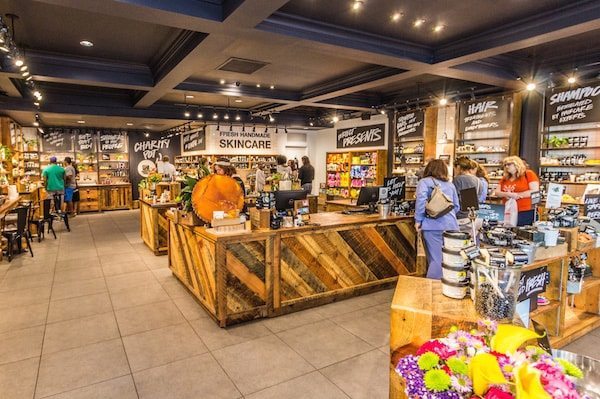Social entrepreneurship—the idea of “doing well by doing good”—has become a lot more popular in recent years. The world is riddled with societal issues, ills and inequities, and now more entrepreneurs are finding creative ways to tackle them while aiming to make a profit. Research shows that millennials, who start twice as many businesses as baby boomers, are more likely to weave social responsibility into their ventures from the start.
The food space is full of these kinds of businesses. There are farms that employ special needs adults to grow produce for sale, vertically integrated food brands that uplift struggling farming communities by building markets for new ingredients, and brands that donate one product to people in need for each product sold. Whatever the exact business model, these companies focus on at least two bottom lines: financial and social impact.
Social entrepreneurs can reap countless rewards from their efforts. To them, the success stories that spring from their endeavors, whether it’s seeing female farmers flourish or keeping vulnerable employees off the streets, are more valuable than gold. However, these rewards may never be realized if the business can’t stay afloat. That’s the hard reality of for-profit social enterprises: Despite noble intentions, if the financials don’t work, the social mission won’t either.
Tera’s latest podcast guests, Mark and Judy Thomas, understood this when starting Garfield Produce as a for-profit business in 2014. Wanting to create job opportunities for people recently released from prison, they built an indoor hydroponic farm in Chicago’s depressed, crime-heavy East Garfield Park. But to have real impact, Mark and Judy knew they must keep expenses low, generate revenue and scale responsibly. So far, they’ve succeeded both financially and socially.
But many social entrepreneurs don’t have the Thomases’ business chops. They may not know the importance of monitoring cash flow, for instance, so they run out of money without knowing why. Or they don’t do enough market research to ensure consumers will want to buy their offerings, or they sink a ton of money into infrastructure then struggle to make sales. Unfortunately, these entrepreneurs often don’t discover their shortcomings or oversights until it’s too late. They simply don’t know what they don’t know.
Other social entrepreneurs have business savvy but are unprepared for the unique challenges faced by for-profit social enterprises. For example, it’s typically tough to land investors because the growth prospects aren’t enticing enough or the business model seems inherently too risky. It can also be hard for these companies to find co-packers. Employee turnover and productivity can be issues too.
These examples are not intended to discourage social entrepreneurship—quite the opposite. The world needs more food and farm businesses that do well by doing good. But to have the best shot at succeeding financially—which is what enables success socially—entrepreneurs should be prepared for the challenges ahead. And don’t be afraid to reach out for guidance! Edible-Alpha® and the Food Finance Institute have plenty of great tools, trainings and other resources to help impact-driven food and farm businesses make money while making the world a better place. In fact, our signature Edible-Alpha® Live! event is a celebration of all things impact: impact investing, social impact, and environmental impact.
Listen to the podcast here!

Register Today!

Learn how impact investing can transform our food system through lively interviews with famous founders and integrated business pitches from innovative companies on the rise. Hosted by FFI director and Edible-Alpha® podcast host Tera Johnson, this lively event is a can’t miss for food and farm entrepreneurs! Also join us for the Edible-Alpha® Live! Kickoff event December 8th featuring Lost Creek Farm.
And now, our roundup of the best food and beverage finance news, events and resources from around the web…

Business Model Insights
- How to succeed with independent grocers and co-ops (New Hope Network) Businesses that are too small for KeHE or UNFI should consider purchasing cooperatives as a means for expansion.
- Convenience 2.0: An Online Twist to Retail Stalwart (Nielsen Insights)
- Food & Beverage E-Commerce: How it Impacts Order Fulfillment (Food Logistics)

Raising Capital
- Offering experiences, sense of community opens door for brands to expand during pandemic (FoodNavigator-USA) “Brands’ acquisition and retention of new customers—and investors—increasingly hinges on their ability to provide experiences and a sense of community that can help relieve customers’ emotional strain due to limited contact with others during the drawn-out coronavirus pandemic.”
- How to Finance a Manufacturing Expansion (Investors Community Bank).
- What the limits of traditional accounting mean for the future of food (GreenBiz)
CPG/National Brands
- What a Biden Administration Means for CPG (Consumer Brands Association Blog) “While there will be new challenges, the CPG industry can also seize opportunities that will arise as Democrats attempt to advance their policy agenda, roll back Trump initiatives and seek opportunities for bipartisan cooperation on selective issues.”
- How Kellogg prepared for the e-commerce surge by boosting its tech and talent (Food Dive)
- The Food Company of Tomorrow? (Food Industry Executive)

Market Trends
- Fueled by pandemic, organic gains consumer traction along with transparency, responsible sourcing (FoodNavigator-USA) The pandemic has illuminated the food system’s impact on the environment and people who grow, process and deliver food. This is accelerating consumer demand for organic, responsibly sourced, clean-label and transparently produced products.
- How the Specter of Contagious Disease Changes What We Want to Eat (Kellogg Insight)
- COVID-19 and our food: Temporary change or a new normal? (Food Dive)

Farming and AgTech
- Many food producers pivoted to online sales during the pandemic. Post office problems threw a wrench in their plans (The Counter) Unexpected slowdowns at USPS have been especially costly for small farmers, restaurants and food producers who rely on shipping to both purchase supplies and fulfill orders.
- Tillage matters (Successful Farming)
- Biden review of USDA may have a climate mitigation perspective (Fern’s Ag Insider)

Deals/M&A
- Last mile delivery startup Onfleet raises $14m to meet Covid-19 demand surge (AgFunder News) Provider of last-mile logistics software to help businesses manage delivery drivers, whether in-house or external, has powered over 80 million deliveries for food and beverage clients including Kroger and Imperfect Foods.
- Nestlé acquires Freshly prepared-meal delivery service for $950 million (Supermarket News)
- TreeHouse buys regional pasta brand maker for $242.5M (Food Dive)

Virtual events
- Fi Europe Connect: 11/23–12/4
- Resetting the Food System from Farm to Fork: 12/2
- Midwest Food Products Association Virtual Summit & Processing Crops Conference: 12/2
- FoodBytes! Pitch: 12/2
- Rodale Institute Panel: Climate Change and the Soil Carbon Solution: 12/5
- Edible-Alpha® Consultant Huddle: 12/7 at 1 p.m. CDT (Read 11/2 huddle notes here)
- BevNET Live Winter 2020: 12/7–12/9
- Edible-Alpha® Live! Kickoff Event: 12/8
- Edible-Alpha® Live!: 12/9
- NOSH LIVE: 12/14–12/16
- FFI Scaler Series: Sales & Distribution Planning Workshop: 1/14

